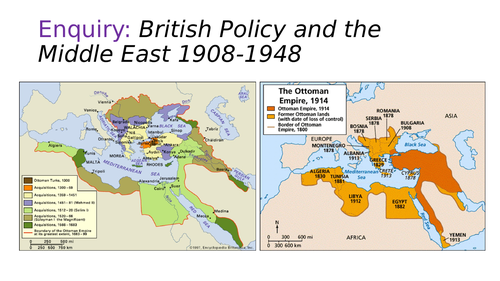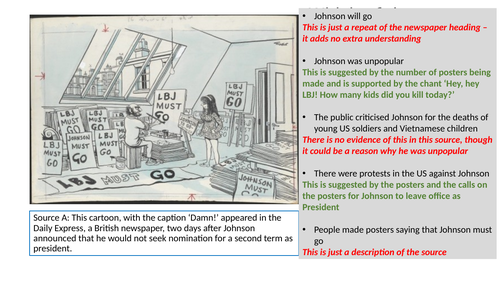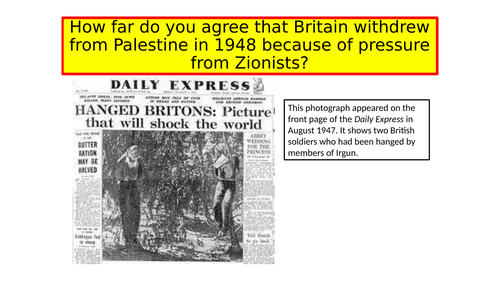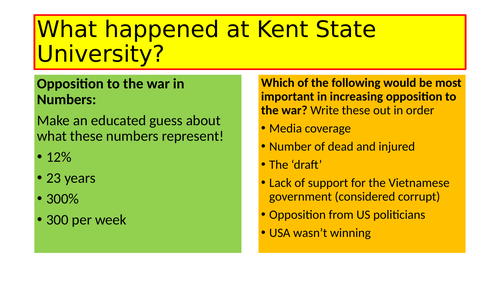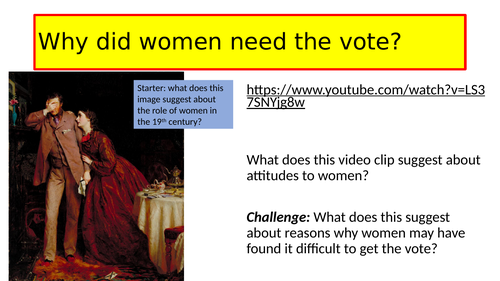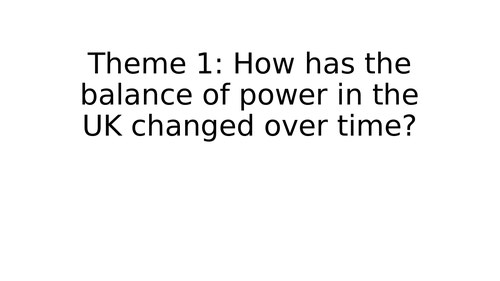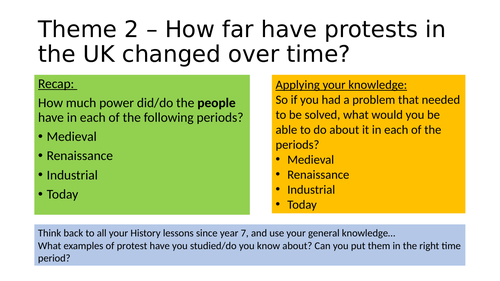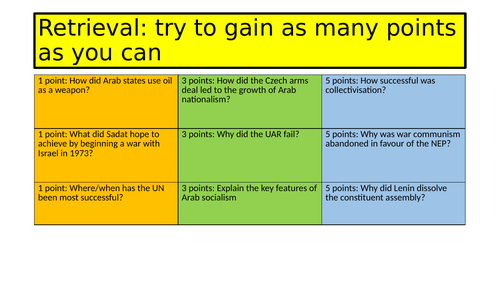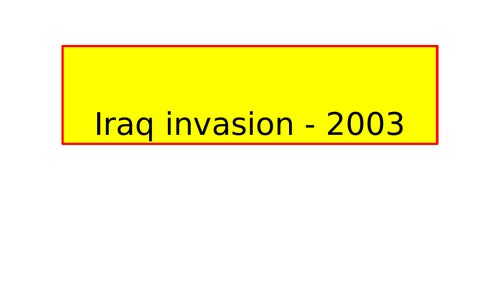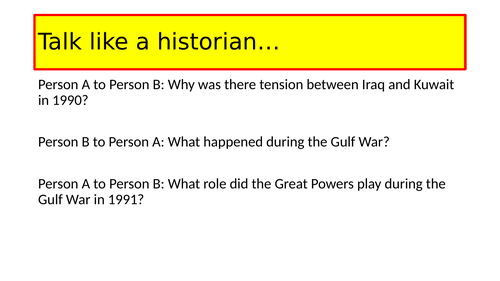
170Uploads
40k+Views
18k+Downloads
All resources

Middle East - British policy WWI
Two lessons on British policy in WWI. Focus of the lesson is on the depth study on British policy. Students will understand the competing claims to Palestine and the impact of British promises made during WWI to the different groups. Students will also begin to consider the motivations behind British policy in this area and the consequences and problems of these.

Vietnamisation - how successful?
A lesson for GCSE students studying the Vietnam war. Includes exam practice skills including for source questions (AQA 4 mark question) and write an account questions. Students will consider the circumstances under which Nixon decided on Vietnamisation, understanding why other options were not taken. They will create success criteria, so that they are able to analyse the successes and failures of the policy. Finally, with a focus on the write an account question, students will be required to put events into chronological order to form a narrative.

British withdrawal from Palestine, 1948 (Y321)
An A-level lesson based around the question: How far do you agree that Britain withdrew from Palestine in 1948 because of pressure from Zionists?
Students will use their existing knowledge to examine the role of long term causes such as the mandate and failure of British policy before examining short term causes during and after the Second World War. Students will categorise causes to create three key factors and detail evidence, explain the consequences, and analyse their causal role in the British decision to withdraw.

Kent State and the media (Cold War in Asia)
A GCSE lesson on the Cold War in Asia. This lesson focuses on the impact of the events at Kent State University, and links to the impact of the media on public opinion in the USA.
Students will carry out a source investigation to work out what happened at Kent State university, and use a video clip to support. To draw this together, students will consider a range of factors influencing public opinion in the US, and will make links between these factors. This will set students up for planning of a write an account question where students will write a ‘step by step’ guide with a focus on chronology and links, as per the requiremetns for 8 mark write an account questions. It concludes with some summary questions using numbered heads for students to reach judgements.

Why did women need the vote?
A lesson designed as an introduction to the suffragettes. Students will consider the problems facing women in the areas of attitudes, education, work and rights, and will gather evidence about these issues. Students will consider how the vote may improve women’s lives in these areas and will reach judgements about the biggest problems facing women in the 19th century. Finally, students will choose from one of two tasks which will require students to apply their understanding of both the problems women faced, and also the reasons why women wanted the vote.

How has power changed over time?
A thematic double lesson in which students consider the nature of power and how it has changed over time. Students will consider key events which were significant in the development of the British political system, such as the Magna Carta, and will weigh up the balance of power at each point by considering the power of the monarchy, parliament and the people. Students will then have the opportunity to evaluate key events in more detail to get a better understanding of how political power was shaped by these events.
This lesson works well as a summary to KS3 learning so that students can draw conclusions from what they have been learning.

How have protests changed over time?
A thematic double lesson in which students consider how protests have changed over time. Students will consider the causes of protests, specifically economic and political, as well as the methods and response of the authorities.
Includes a double lesson carousel in which students will carry out a range of tasks for each time period: medieval, renaissance, industrial and modern. Students will draw conclusions by considering a series of statements about protests and deciding how much they agree with each.
This lesson works well as a summary at the end of KS3 where students can consider the periods and the key ideas and concepts from each.

Middle East - Treaty of Washington
An A-level lesson in which students consider the factors helping and hindering a peaceful settlement between Israel and Egypt. The lesson has been designed to fit within the students’ understanding of the role of the Great Powers in the Middle East, particularly the USA. This lesson does assume that students will have done some reading on the Treaty of Washington prior to the lesson, but this is not essential.
Students will use cards to understand the aims and motivations of Egypt, Israel and the USA, and will then consider the barriers to a settlement being reached. Students will reach a judgement on the importance of the US in the settlement.

Y321 - 2003 Iraq War
An A-level lesson which asks students to consider the causes and the consequences of the 2003 invasion of Iraq. The lesson ties to the theme of the roles of the Great Powers, but covers content from other themes also.
Students will create a storyboard to understand the sequence of events leading to the invasion, and will then analyse and evaluate the consequences of the invasion in order to prepare themselves for considering turning point question in particular. Students will finish by drawing connections to other conflicts in the gulf region to help with their thematic understanding.

1991 Gulf War
An A-level lesson in which students will evaluate the extent to which the aims of the Great powers were successfully achieved in the 1991 Gulf War. The lesson links to the first theme of OCR Y321 in which students consider the role of the Great Powers in the Middle East. Students will match the aims of the Great Powers to the methods and impact. Students will reach a judgement on the extent to which America could claim victory from the conflict. This will contribute to students’ ability to understand how successfully the Great Powers achieved their aims in the Middle East for their thematic essays.

